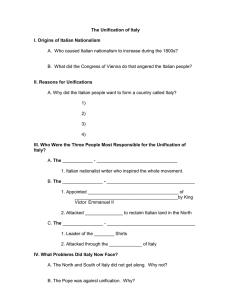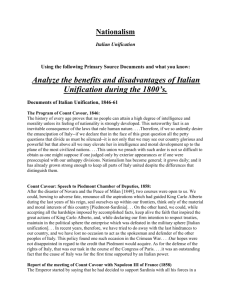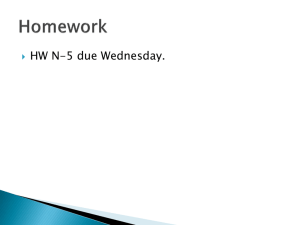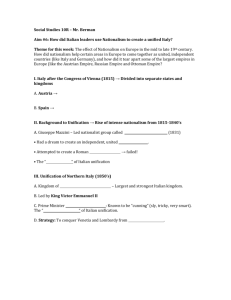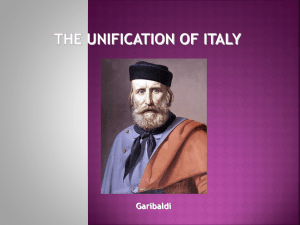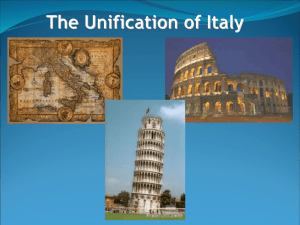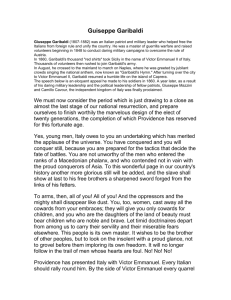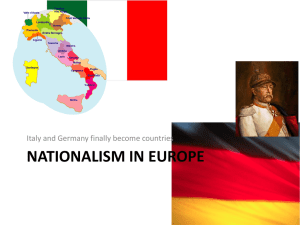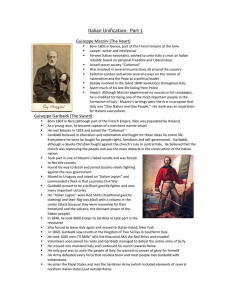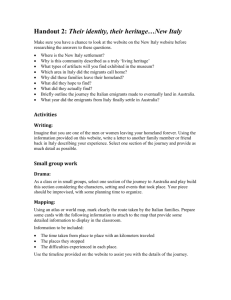World History notes 1-15-13 Italian Unification
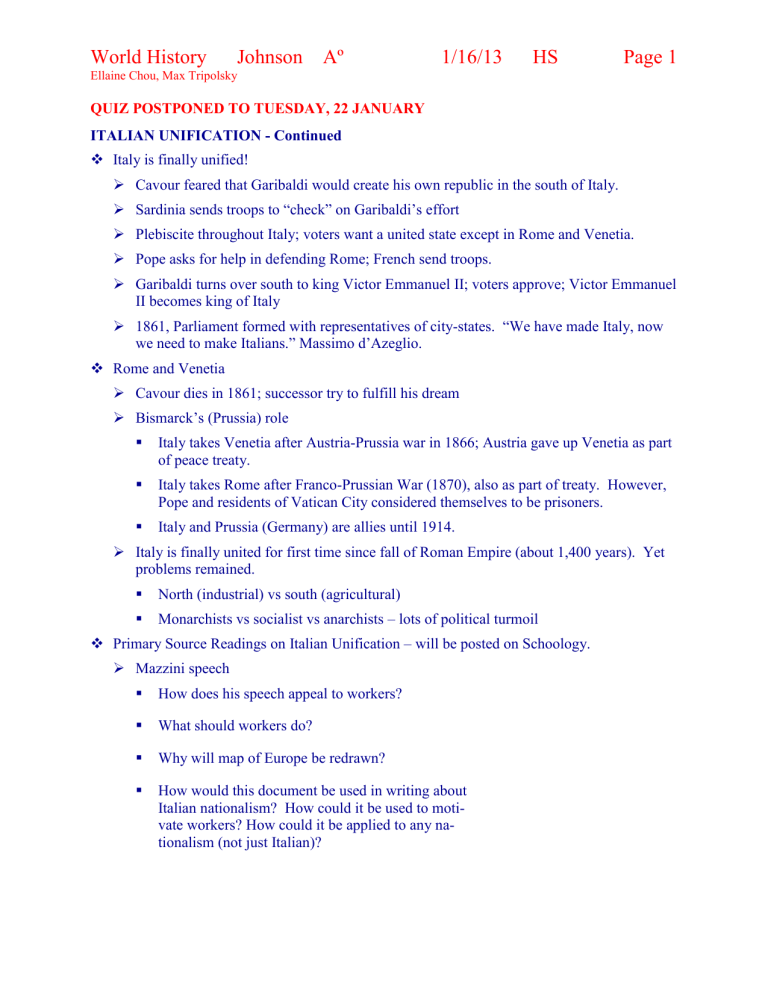
World History Johnson Aº
Ellaine Chou, Max Tripolsky
1/16/13 HS Page 1
QUIZ POSTPONED TO TUESDAY, 22 JANUARY
ITALIAN UNIFICATION - Continued
Italy is finally unified!
Cavour feared that Garibaldi would create his own republic in the south of Italy.
Sardinia sends troops to “check” on Garibaldi’s effort
Plebiscite throughout Italy; voters want a united state except in Rome and Venetia.
Pope asks for help in defending Rome; French send troops.
Garibaldi turns over south to king Victor Emmanuel II; voters approve; Victor Emmanuel
II becomes king of Italy
1861, Parliament formed with representatives of city-states. “We have made Italy, now we need to make Italians.” Massimo d’Azeglio.
Rome and Venetia
Cavour dies in 1861; successor try to fulfill his dream
Bismarck’s (Prussia) role
Italy takes Venetia after Austria-Prussia war in 1866; Austria gave up Venetia as part of peace treaty.
Italy takes Rome after Franco-Prussian War (1870), also as part of treaty. However,
Pope and residents of Vatican City considered themselves to be prisoners.
Italy and Prussia (Germany) are allies until 1914.
Italy is finally united for first time since fall of Roman Empire (about 1,400 years). Yet problems remained.
North (industrial) vs south (agricultural)
Monarchists vs socialist vs anarchists – lots of political turmoil
Primary Source Readings on Italian Unification – will be posted on Schoology.
Mazzini speech
How does his speech appeal to workers?
What should workers do?
Why will map of Europe be redrawn?
How would this document be used in writing about
Italian nationalism? How could it be used to motivate workers? How could it be applied to any nationalism (not just Italian)?
World History Johnson Aº
Ellaine Chou, Max Tripolsky
Garibaldi
Who are Italy’s chief enemies and why?
1/16/13 HS Page 2
What are the people being asked to do and why?
How is unification to be achieved?
Why is this document so important historically?
What does it say about nature of Italian nationalism in 1860?
King Victor Emmanuel II
Major challenges faced the new Italian nation in
1871?
Why does he mention the danger of rivalry?
Why does he encourage the nation to “love work?”
How representative are these of the concerns that activated other European nations at this time?
What other types of documents and evidence would help gain a fuller understanding of the challenges facing Italy in 1871?
